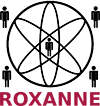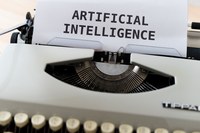Changing the Public Sector with Artificial Intelligence
AI for all: the open source revolution
The rise of open-source software (OSS) is driving the AI revolution [1]. Nowadays, OSS empowers any junior computer programmer with fairly basic machine learning education, to deploy first-class AI capabilities into organizations. In all likelihood, more than a half of pure AI academic research relies on OSS.
Following this trend, AI is (or should be) an integrative part of any LEA. In general, an LEA as part of the public sector struggles with the fast moving pace of AI R&D, while suffering from recruiting competition with the private sector regarding high-tech workforce. And exactly here, the OSS apparently comes to rescue. Nevertheless, LEAs, as highly regulated government offices, are naturally very restricted regarding OSS, since most of their IT environment is not open to the internet [2]. This limits direct interaction with fundamental modern OSS components based on Linux, Git, Docker, Python, etc. All these components are usually seamlessly installed and constantly updated in computers, but not when deployed in restricted access networks. Moreover, AI systems require trained models for inference. With the current democratization trend in AI, powerful new open-source models are frequently being uploaded by academic researchers around the world. Organizations more open to the internet have the constant opportunity to easily upgrade their AI models with minor efforts.
But all this automation offered by AI software comes with a price for the organization. Veteran employees must be familiarized with AI-powered tools through a smooth but quick transition. Several LEA organizations are working on extensive training programs that will upskill most of their workforce to adapt to the AI paradigm and tailored educational tools should be developed to upskill LEA workers.
ROXANNE
From this perspective, a platform like ROXANNE comes in handy for a LEA. The ROXANNE vision is to provide a self-contained environment containing AI investigative capabilities. Recognising the ethical and privacy implications of powerful investigative capabilities, partners conducted an integrated impact assessment covering the ethical, legal (especially data protection and fundamental rights), and societal issues that could arise from use of the ROXANNE platform. Potential impacts for end-users and citizens have been monitored and assessed, resulting in positive opportunities being seized and negative risks being minimised or mitigated. The capabilities in the ROXANNE platform include:
- Speech recognition
- Speaker Recognition
- Criminal network analysis
- Named entity recognition from text
- Face and scene recognition from video
All the above capabilities are packed in a self-containing environment, easily to install, considering data sensitivity and supporting offline installation. The architecture is mostly open source, so internal adaptations can be easily handled and new trained models can be fetched and plugged into the system at any time.
But in addition, ROXANNE also supports the training of users coming from different backgrounds, through an online educational platform which has been specially developed during the project. The training platform is based on the Moodle Framework, which is widely used by several Universities and other educational organizations worldwide and addresses not only system functionalities but also the core of the technologies available inside the system.
To conclude, it is important to highlight a maybe overlooked face of the ROXANNE project. It solidifies a rare opportunity of having a close interaction between LEA users, academic researchers and IT industry experts, throughout the development process of the platform. Research topics and technology were developed focused on LEA end users requirements. Beyond the productive synergy created, all this cooperation took place in amenable and professional physical and virtual meetings.

